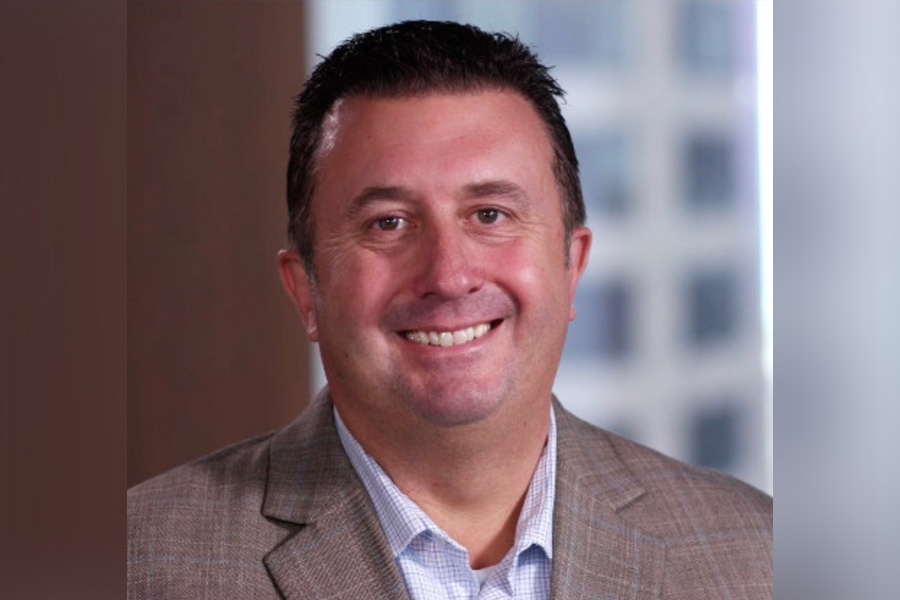What is your current role in health care?
“I am a partner at Deloitte Consulting. I’ve spent about 20 years in healthcare technology and consulting to health systems around the country and globally. Three years ago, I took on a similar role that focuses across all the industries that Deloitte serves.”
What stands out as a favorite memory during your time as an MHA student?
“Getting together on campus with my cohort in person and putting a face to the voices was great. The human centered design course and working in teams was interesting and applicable. The same was true of the healthcare strategy class. The opportunity employ strategy really helpful.”
How has the MHA Program helped prepare you for your career?
“The MHA program introduced me to some amazing people who were working in very different aspects of healthcare than I was, and I still keep in touch with so many of them today. It provided a great network of new friends and we’ve collaborated on many things within healthcare.
I always had a little bit of apprehension when meeting with the CEO or CFO of a health system, and the program helped me feel much more confident in not only what I had learned, but also what I already knew. It gave me more confidence to be able to talk about healthcare operations and financials in a better context because I now knew what a typical MHA would have learned. This helped me feel more confident talking about things like income statements with a better understanding of what drives the income statement in a healthcare organization, for example.”
What challenges and opportunities will healthcare leaders encounter in the next 5-15 years? What skills will leaders need to be successful in light of these challenges and opportunities?
“There are quite a few, but there are significant operational challenges to maintaining financial viability. We see that manifest itself in many different ways, including mergers and acquisitions. Health systems who maybe aren’t viable or can’t stand alone will continue to be acquired by some of the big for-profit or not-for-profit systems out there, which then creates integration challenges, and so on.
I guess I would feel bad if I, as a healthcare technology guy, didn’t comment on what technology will do for our health system over the next several years. The preponderance of data and what that will allow us to do in healthcare, is exciting to me. It is disappointing so far because we have had so much data coming out of electronic health records for close to 10 years now, but there is not enough being done with it. I can absolutely see us driving operational and clinical efficiencies and improvements through truly predictive analytics, and the growth of artificial intelligence in both operations and care delivery. The adoption of virtual health in a more meaningful way due to the pandemic is also bound to drastically change the way care is delivered going forward as well.”
People need a basic understanding of technology, and analytics and how to employ the in looking at operational improvement, expanding research, and delivering more personalized care. So my perspective is that all roles in the health system, including the CEO, CFO, etc. really need to embrace improved analytics and start developing more trust in technologies like cognitive/machine learning, virtual health – beyond urgent care, and virtual reality. I think awareness in what these technologies can do, and adoption of them, will allow them to improve how they run their health systems.
Adapting to the changing demands of the consumer I think was probably the biggest thing we saw coming out of COVID, including the unbelievable jump forward in adoption of virtual health and other kinds of virtual care. My guess is there’s still quite a few clinicians and others catching up to that change, but it’s certainly here to stay. Driving care outside the walls of the hospital is getting so much attention and investment, I think health systems need to pay attention.”
If you could give one piece of advice to a current student, what would it be?
“First and foremost, get to know your classmates. The network you’re developing is the absolute best asset you will gain the program. Operations classes and strategy classes are important. You also need to understand how technology is transforming hospital operations.”
Why is your class the best class ever?
“We had younger folks right out of undergrad, mid-career people, and established professionals like myself. We had physicians clinicians, consultants, administrators, and even a veterinarian. It was a fun and diverse group and made for interesting conversations. We tackled problem solving in very creative ways. My cohort was truly amazing.”

